Crowds gather in Iran to mourn military leader killed by US airstrike
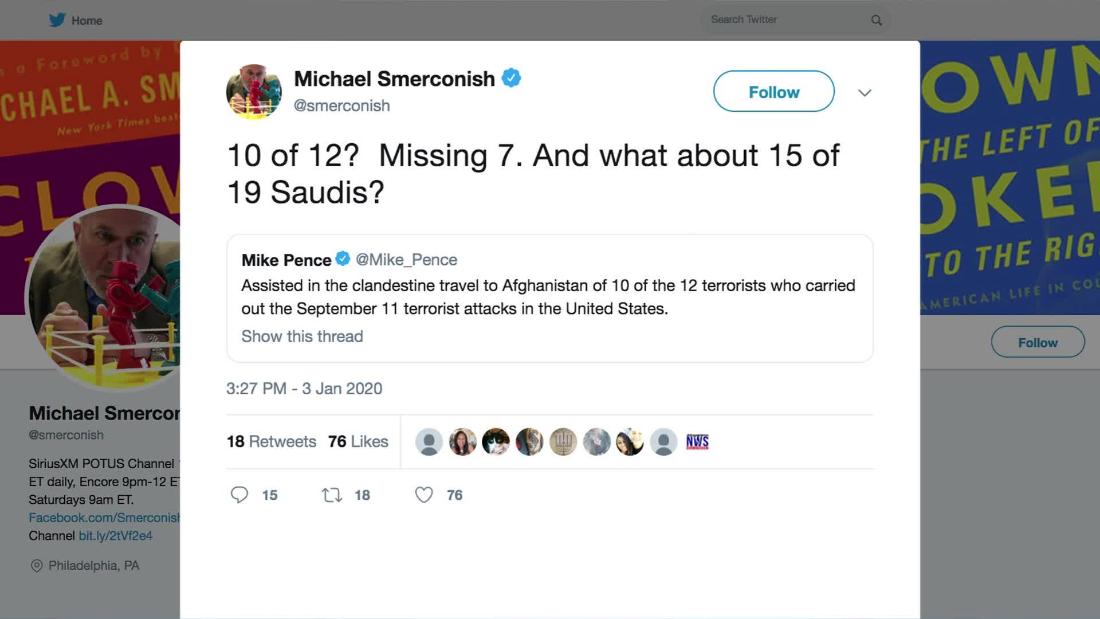
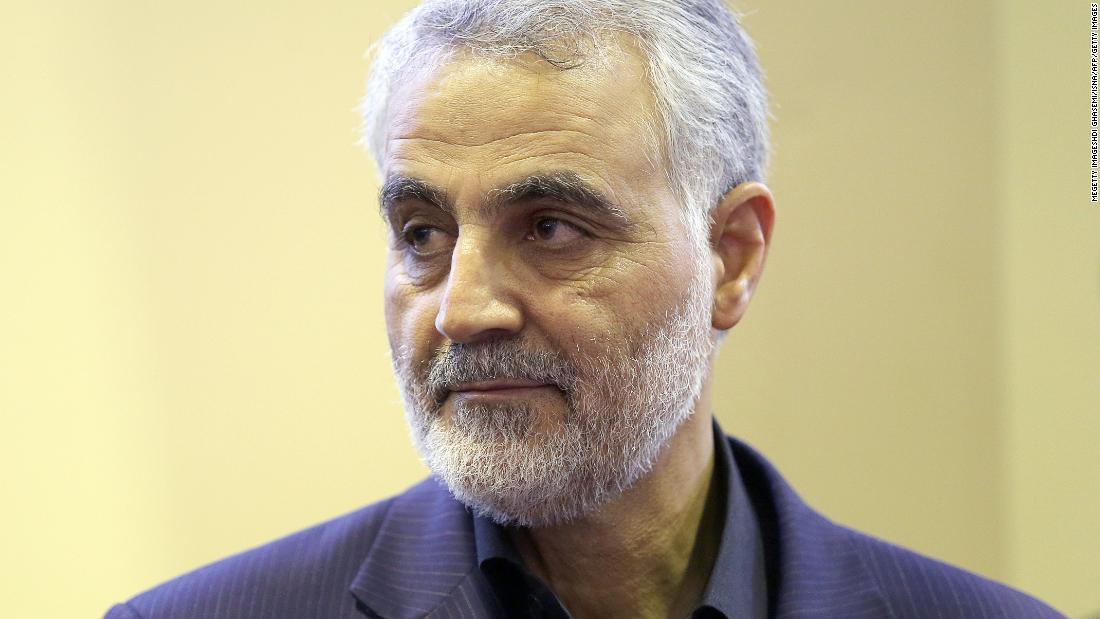
What you need to know
- Iran's military leader killed: Qasem Soleimani, top general and one of the most powerful men in Iran, was killed in a drone strike at Baghdad airport early Friday.
- Funeral held in Iran: Soleimani's body arrived in Iran earlier on Sunday. He was revered as one of the country's most powerful men.
- Rocket strikes: On Saturday, three locations around Iraq, including Baghdad's Green Zone which is home to the US Embassy, were hit by rockets. It's unclear who launched the rockets.
- Trump ordered the strike: US Secretary of State Mike Pompeo said Friday the airstrikes disrupted an "imminent attack" in the region that put American lives at risk.
- US deploying troops: The US is sending thousands of additional troops to the Middle East in response, according to a defense official.
Skepticism mounts over evidence of "imminent" threat that Trump says justified Soleimani killing
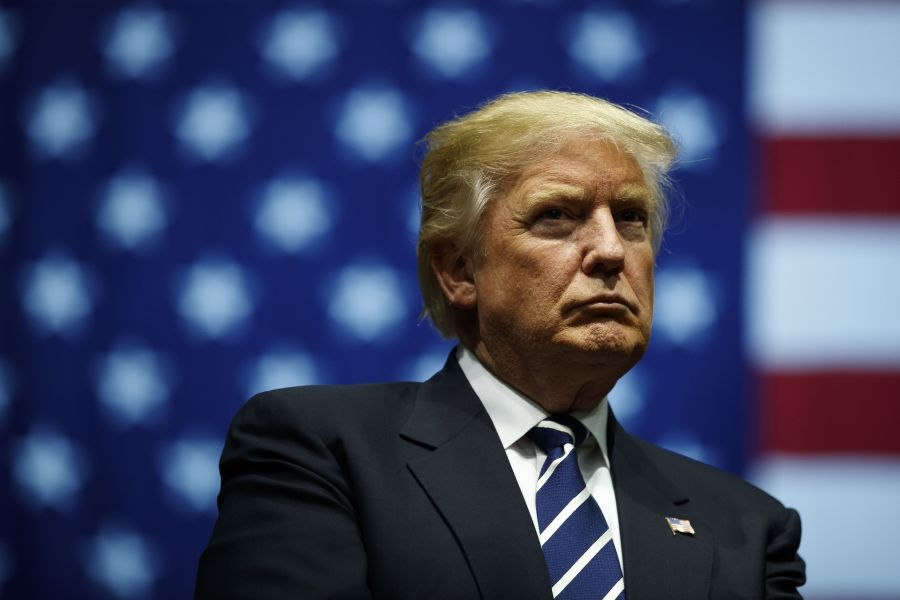
President Donald Trump, Secretary of State Mike Pompeo and top military officials have offered similar explanations for targeting Soleimani, citing an "imminent" threat from his plans to carry out what Chairman of the Joint Chiefs Mark Milley called a "significant campaign of violence" against the US in the coming days, weeks or months.
Iran warns Trump about targeting cultural sites
Zarif said targeting cultural sites would be in breach of key principles of international law.
“Targeting cultural sites is a WAR CRIME,” Zarif tweeted. “Whether kicking or screaming, end of US malign presence in West Asia has begun.”
Also taking to Twitter Sunday was Iran’s Minister of Information Mohammed-Javad Azari Jahromi who described US President Donald Trump as “a terrorist in a suit.”
Massive crowds attend service for Soleimani
Mourners have taken to the streets in Iran’s western town of Ahvaz.
The bodies of Qasem Soleimani and Abu Mahdi al-Muhandis arrived in the city earlier.
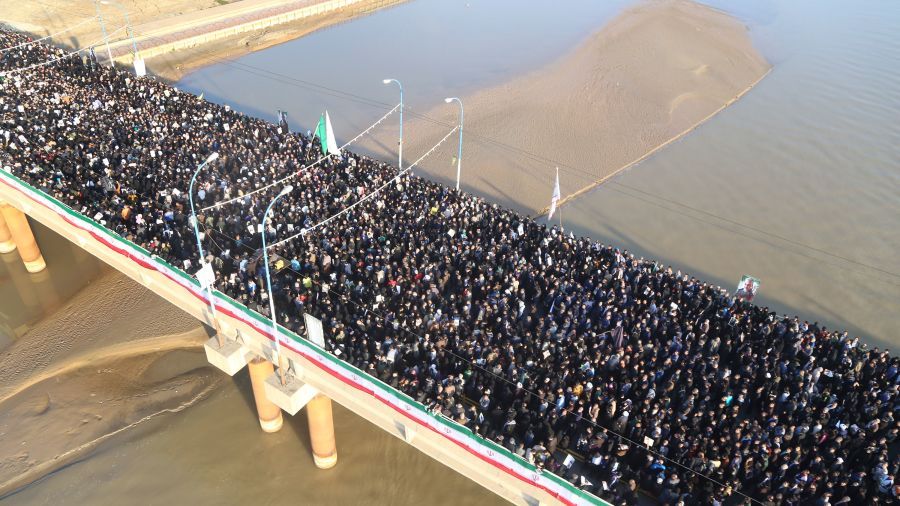
A funeral service for Soleimani will take place later on Sunday in Mashhad, at the holy site of Imam Reza Shrine.
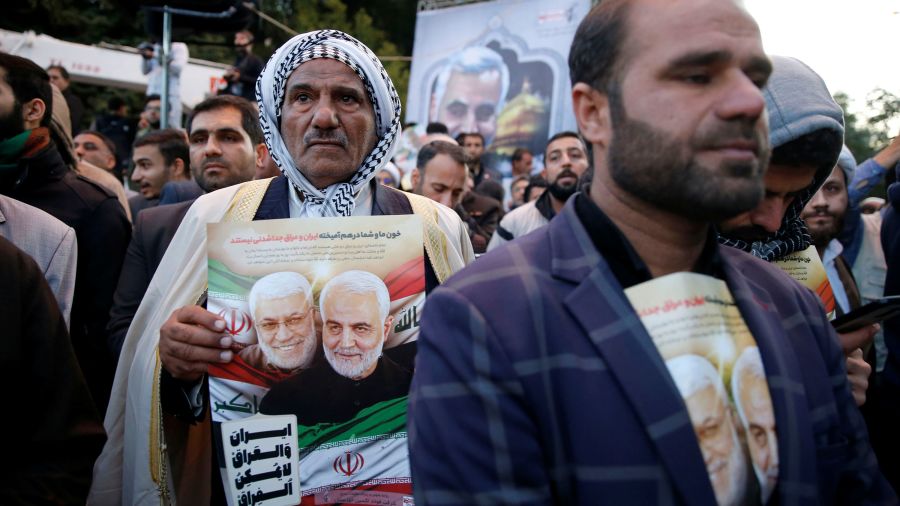
Iran will observe three days of national mourning, paying respects to Soleimani, who was seen as a national hero and has been called a martyr by the Iranian leadership.
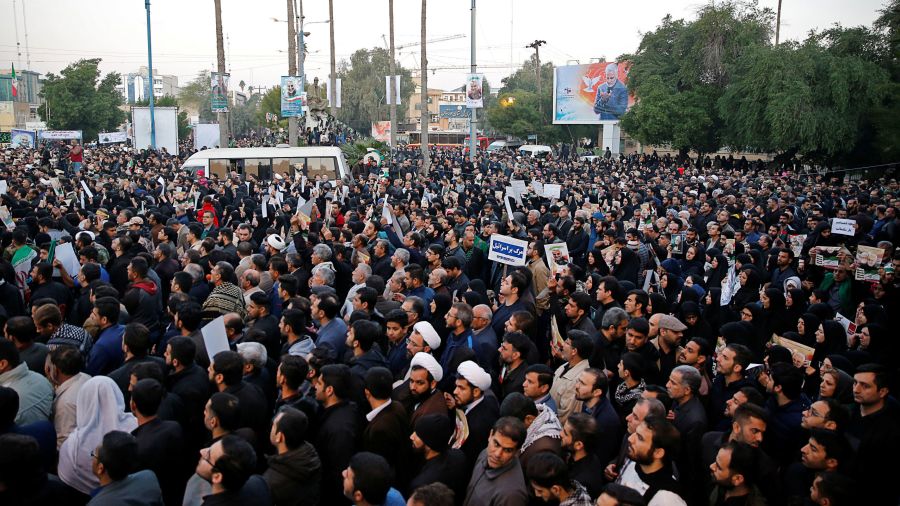
UK foreign secretary urges de-escalation
Raab said he was “not naïve” about the role of Soleimani, the Qods force or the Iranian Revolutionary Guard in the region – describing the general as a “regional menace” -- but emphasized that “a war is in no one’s interest.”
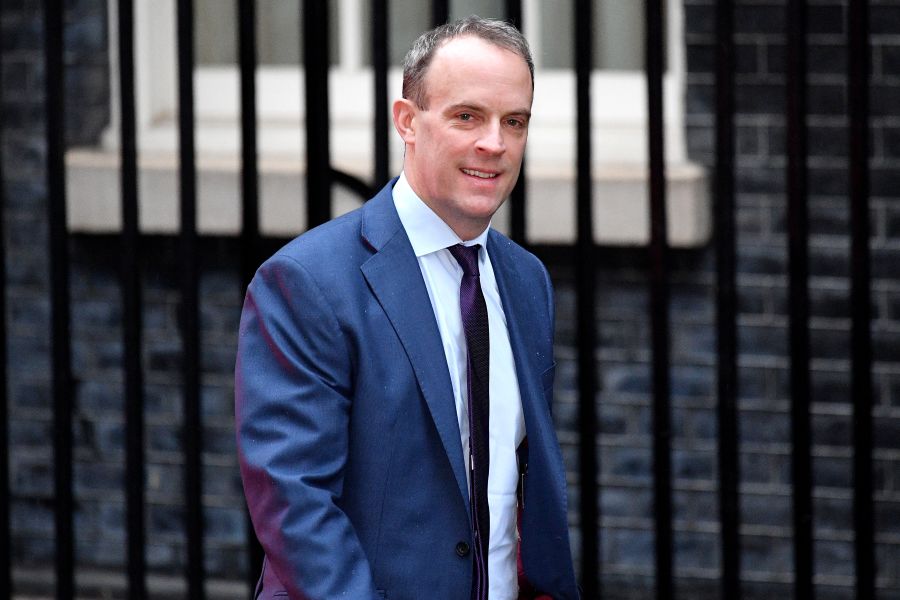
Speaking on Sky News on Sunday, Raab said “the only people who would gain” from a possible war would be terrorist groups like ISIS who would try to exploit the vacuum created by any war on the ground.
He said he had spoken to Iraq’s Prime Minister Sunday morning, to the Iraqi President Saturday night, and was planning to contact Iran’s Foreign Minister Javad Zarif.
Raab said he is meeting next week with US Secretary of State Mike Pompeo as well as his French and German counterparts.
Hashtag #WhereIsBorisJohnson was trending on Twitter in the UK, and opposition politicians including Labour leader Jeremy Corbyn criticized the PM.
Raab defended his boss, insisting he has been in constant contact with Johnson and “the Prime Minister is in charge.”
Get caught up: Here are the things you need to know about the US airstrike in Baghdad
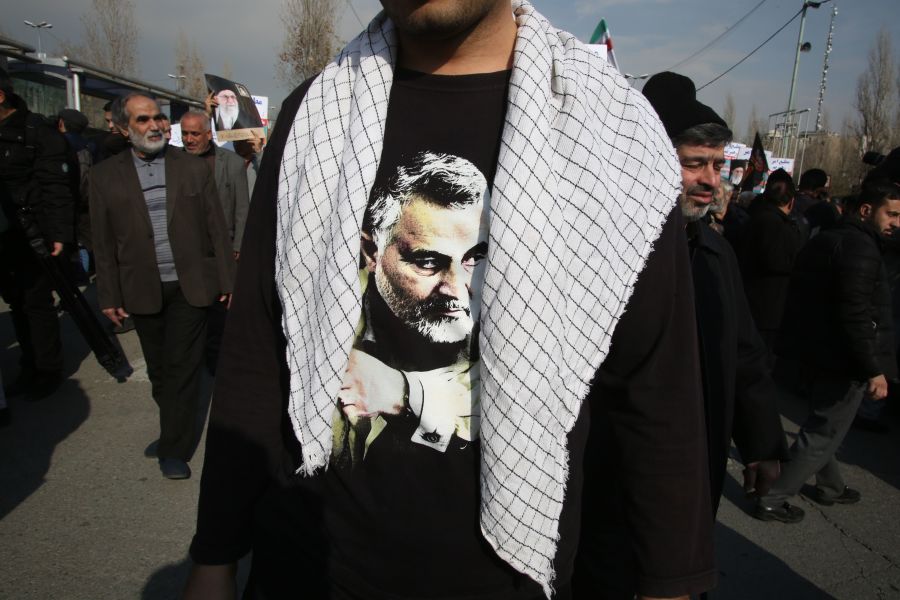
Iranian military commander Qasem Soleimani was killed Friday following a US airstrike.
Here's a recap of what we know:
- Iran's military leader killed: Soleimani, top general and one of the most powerful men in Iran, was killed in a US drone strike at Baghdad airport early Friday. The deputy head of an Iran-backed Iraqi militia was also killed. US Secretary of State Mike Pompeo said the airstrikes disrupted an "imminent attack" in the region that put American lives at risk.
- Funeral processions were held Saturday: Thousands mourned Soleimani at services in Iraq and Iran. The general's body arrived to Iran earlier on Sunday.
- US deploying troops: The US is sending thousands of additional troops to the Middle East in response, according to a US defense official.
- Soleimani was watched as he moved around the region: Soleimani was under frequent surveillance by the US intelligence community, according to a senior administration official.
- Rockets strike Iraq: A number of rockets landed in the Baghdad neighborhood of Al-Jadiriya and outside Balad Air base on Saturday. At least one rocket hit Baghdad’s Green Zone, the Iraqi Army said in a statement. It is unclear where the rockets were shot from and who fired them.
- International reaction: France, Germany and China urge Iran to preserve the nuclear deal and not violate it.
Mourners chant "death to America" at funeral procession for Soleimani
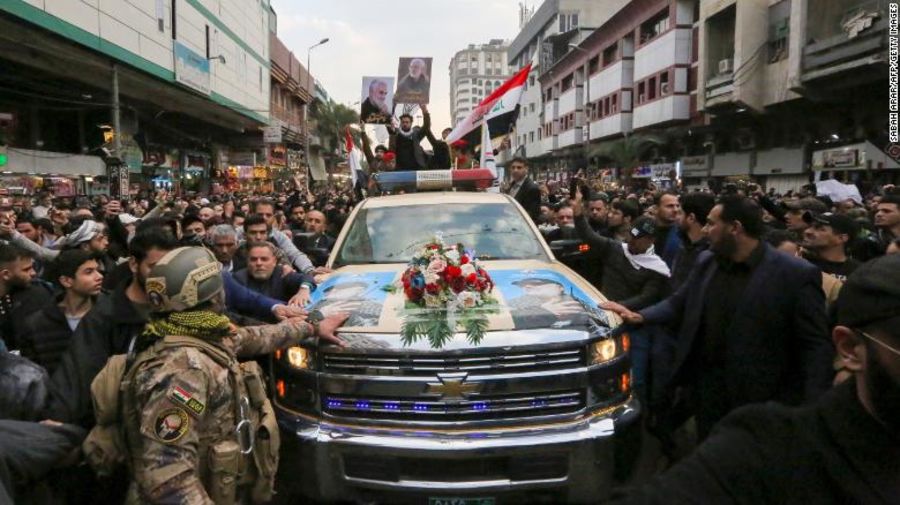
Mourners wept as they walked alongside the vehicle carrying his coffin down the streets of Baghdad. Some carried signs that read, "We are all Muhandis and Soleimani."
Iraqi Prime Minister Adil Abdul Mahdi was among the crowd of mourners walking next to the cars carrying the coffins.
Some women carrying flags of the Iraqi Popular Mobilization Forces — the forces al-Muhandis commanded — erupted into tears when the slain commanders were mentioned. Many mourners said the attack strengthened their resolve to expel US forces from Iraq.
"This strike killed our heroes, but it created a thousand more Hajji Soleimanis and Muhandises," said Assifa Abbas, 50, a mother of three PMF fighters. "If Parliament doesn't vote to expel US troops, they will see the true face of the Iraqi street."
Iran says it will fight back following Soleimani's death
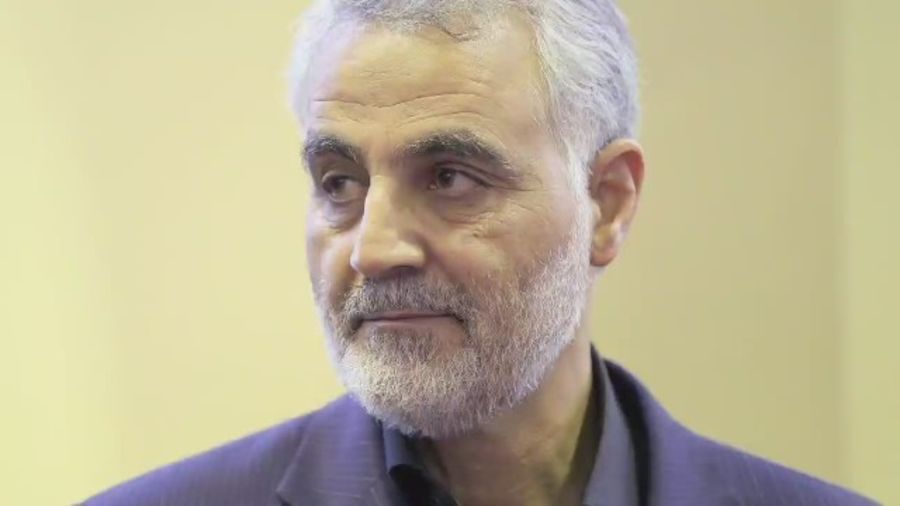
"Everyone will take revenge," he replied, in a video aired by Iranian state television.
Iran's Supreme Leader, Ayatollah Ali Khamenei, has vowed "harsh revenge," according to a statement on his official website.
"His pure blood was shed in the hands of the most depraved of human beings," Khamenei said.
In a letter to the United Nations, Iran described the attack as state terrorism and an unlawful criminal act. European officials and the UN have called for de-escalation.
Funeral services for Soleimani are scheduled in Iran today
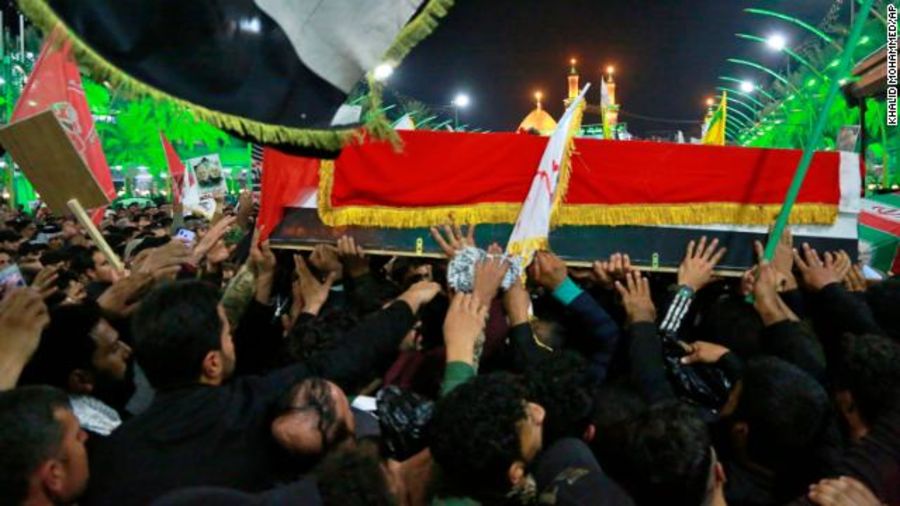


Post a Comment